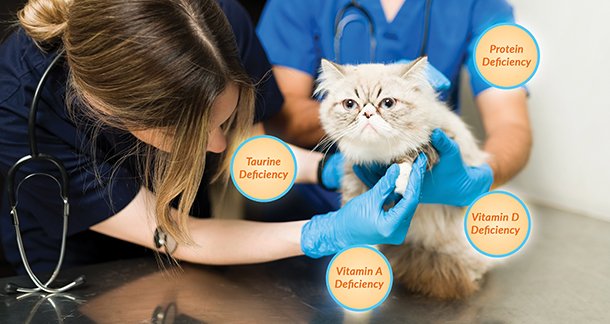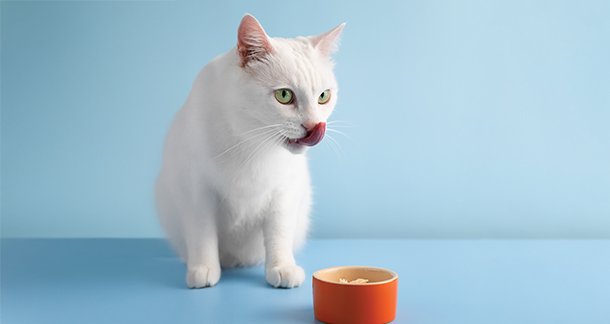Cats are obligate carnivores, meaning their diet must be rich in animal-based proteins and certain essential nutrients that they cannot synthesize on their own. Unlike dogs, cats have very specific dietary requirements, and deficiencies in key nutrients can lead to serious health issues. Understanding these common nutritional deficiencies is crucial for any cat owner or caregiver.
- Taurine Deficiency
Taurine is an essential amino acid for cats, vital for proper heart function, vision, and reproductive health. Unlike many other animals, cats cannot produce sufficient taurine on their own and must obtain it from animal-based proteins. A deficiency can lead to dilated cardiomyopathy, a serious heart condition, as well as retinal degeneration, which can result in blindness. Reproductive problems, including stillbirths or low birth weight in kittens, are also associated with taurine deficiency. Commercial cat foods are typically supplemented with taurine, but homemade diets that are not carefully balanced can be a significant risk.
- Vitamin A Deficiency
Vitamin A is another crucial nutrient that cats cannot synthesize from plant sources. It is essential for vision, immune system function, and skin health. Cats rely on preformed vitamin A, which comes from animal tissues, particularly liver. Deficiency in vitamin A can lead to night blindness, poor growth in kittens, and skin issues such as rough coat, scaling, and increased susceptibility to infections. Chronic deficiency may also contribute to skeletal abnormalities.
- Vitamin D Deficiency
Unlike humans, cats cannot produce sufficient vitamin D through sunlight and must obtain it from their diet. Vitamin D is essential for calcium and phosphorus metabolism, which supports healthy bones and teeth. Deficiency can result in rickets in kittens or osteomalacia in adult cats, leading to soft bones, fractures, and skeletal deformities. While most commercial cat foods provide adequate vitamin D, homemade diets or poorly balanced foods can put cats at risk.
- Protein Deficiency
Protein is the cornerstone of a cat’s diet. Being obligate carnivores, cats require high-quality animal protein for muscle maintenance, energy, and overall health. Inadequate protein intake can cause poor growth, muscle wasting, lethargy, and impaired immune function. Long-term protein deficiency may also lead to poor coat condition and reproductive issues. It is important to provide complete protein sources that include all essential amino acids.

- Essential Fatty Acid Deficiency
Omega-3 and Omega-6 fatty acids are vital for skin and coat health, brain function, and inflammatory regulation. Cats cannot convert plant-based fatty acids efficiently, so these nutrients must come from animal sources such as fish oil or poultry fat. Deficiency may result in dry, flaky skin, poor fur quality, slow wound healing, and behavioral changes.
- Calcium and Phosphorus Imbalance
Cats require a precise balance of calcium and phosphorus for bone health. Deficiency or imbalance, often caused by feeding bones alone or improper homemade diets, can result in skeletal deformities, dental issues, and weak muscles. Growing kittens are particularly susceptible to deficiencies in these minerals.
- Vitamin B Deficiencies
B vitamins, including B1 (thiamine), B2 (riboflavin), B6 (pyridoxine), and B12 (cobalamin), are essential for energy metabolism, nervous system function, and red blood cell formation. Deficiency in these vitamins can lead to neurological signs such as unsteady gait, seizures, poor appetite, vomiting, and lethargy.
Conclusion
Cats have very specific nutritional needs, and deficiencies in taurine, vitamins A and D, protein, essential fatty acids, calcium, phosphorus, and B vitamins can lead to severe health complications. Feeding a balanced, high-quality commercial diet or carefully formulated homemade diet is essential to prevent these deficiencies. Regular veterinary check-ups and monitoring your cat’s health and dietary intake can help ensure a long, healthy, and active life for your feline companion.
About Author
By Simran Sharma

